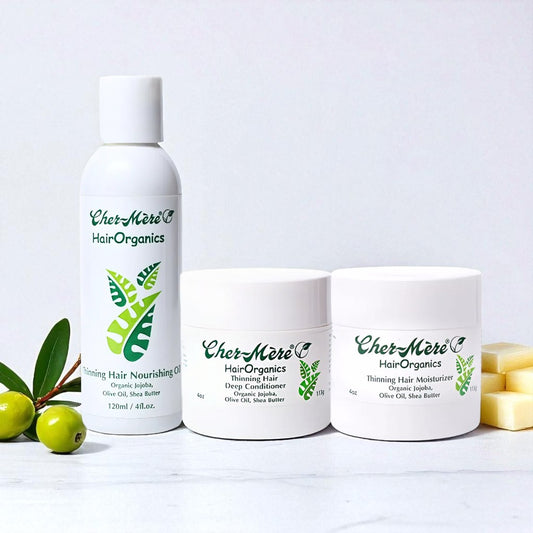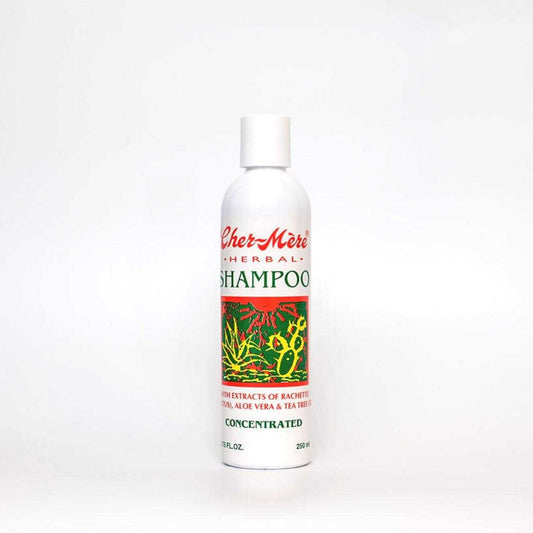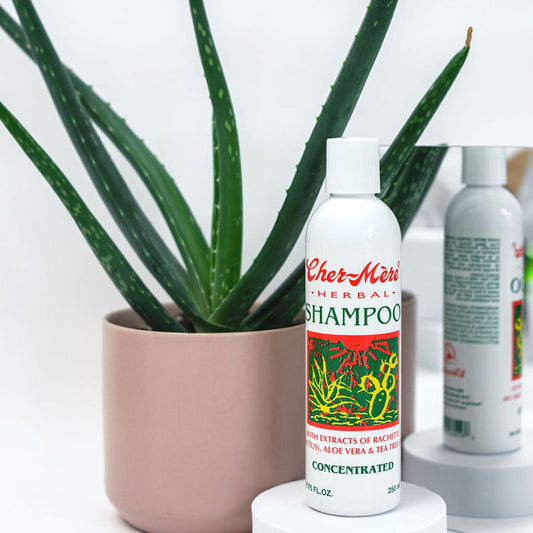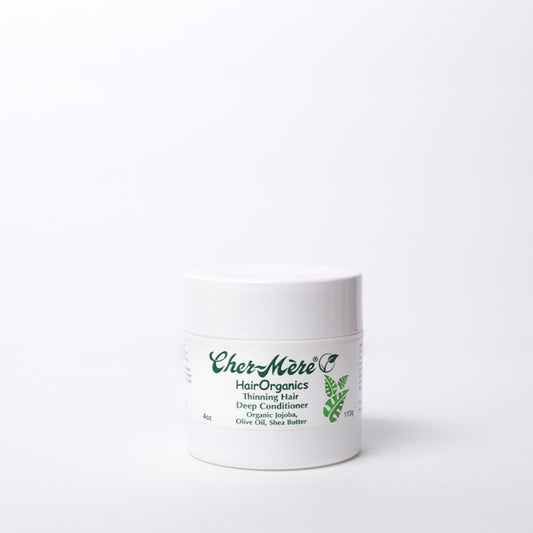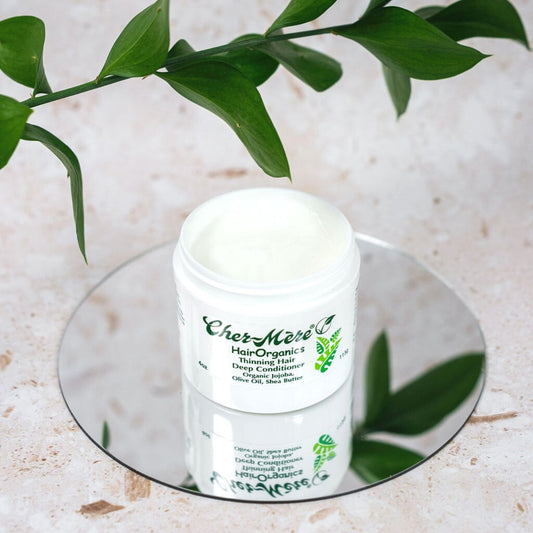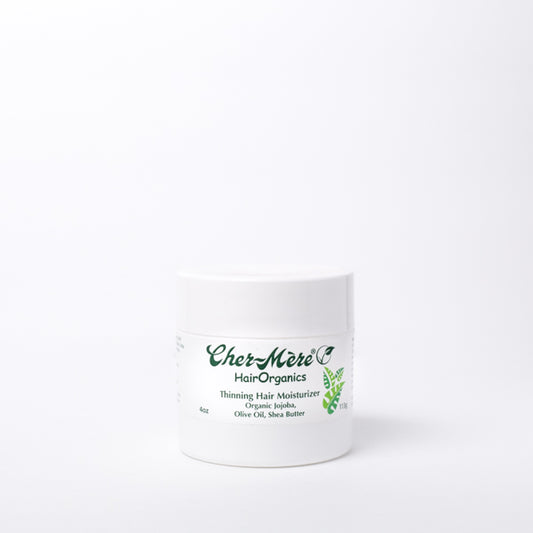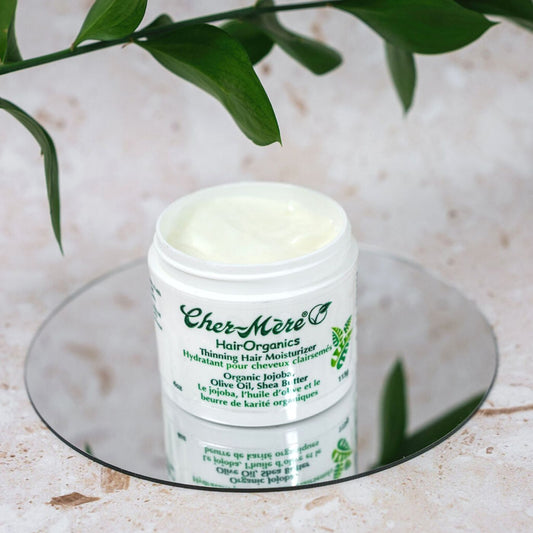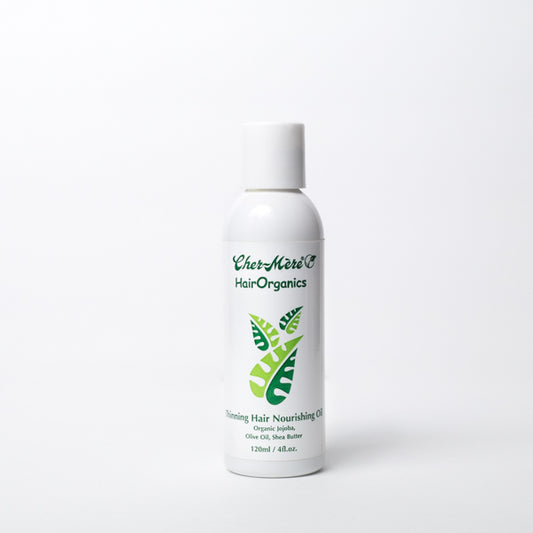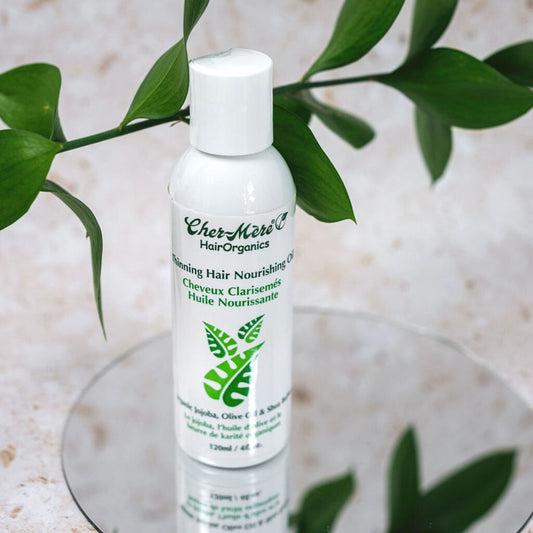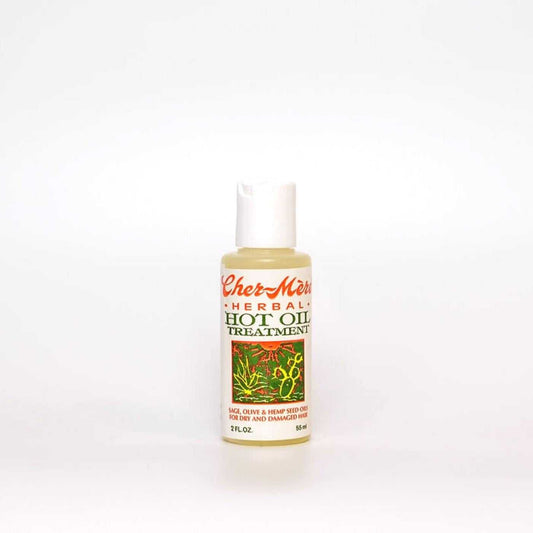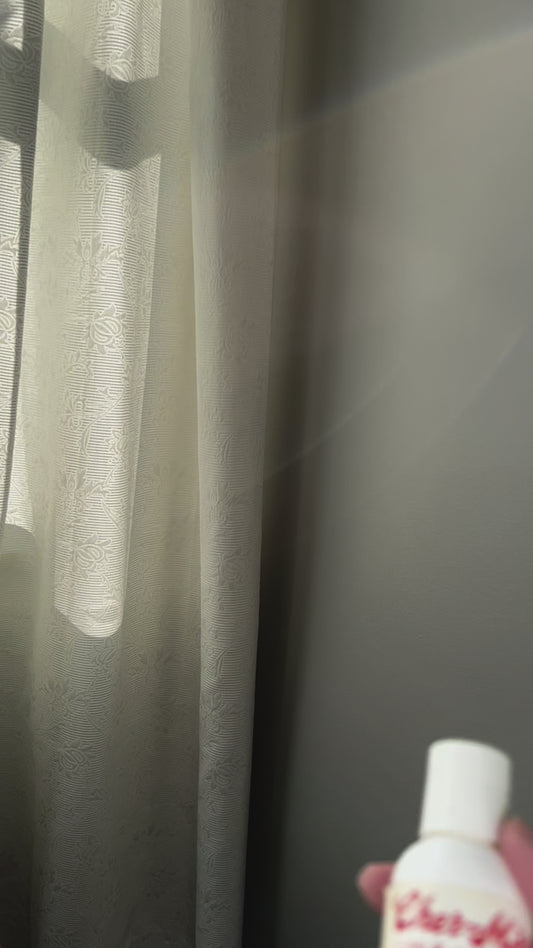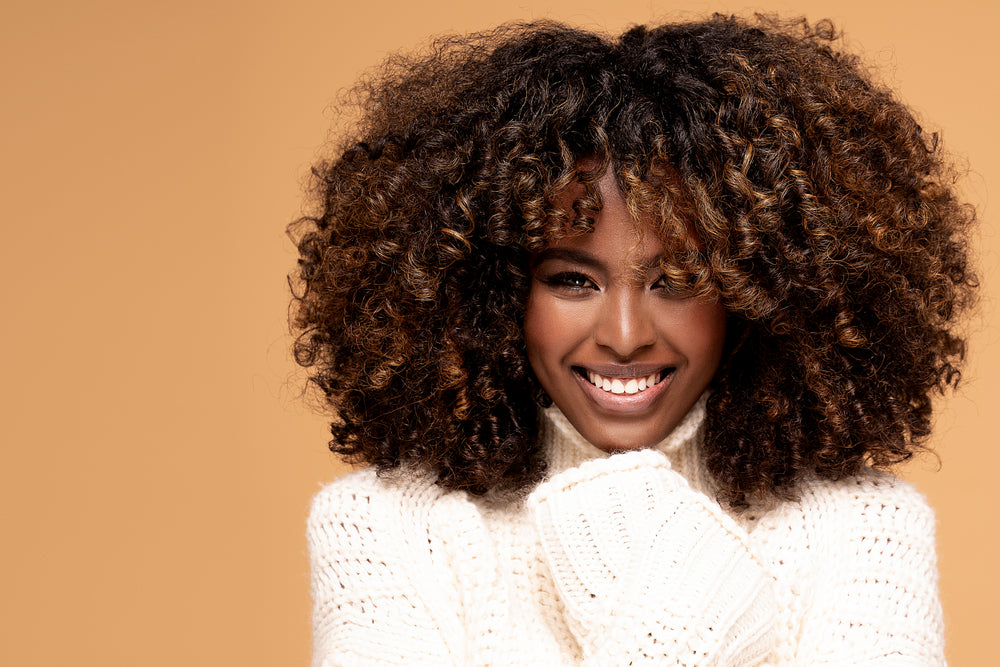
How to Take Care of Thinning Hair
It can be distressing to experience hair thinning and hair loss, especially if you’re used to having full, long, healthy hair. However, don’t panic. Hair thinning is often a temporary problem, and can be treated at home by overhauling your hair care routine.
But what causes thinning hair, and what can you do to restore your hair to its full, bouncy, thicker self? In this guide, we’re going to go over the main causes of thinning hair, how to increase hair thickness naturally, and the best products for increasing your hair density.
Keep reading to learn more about getting a handle on your thinning hair routine.
How to Take Care of Thinning Hair
What causes thinning hair?
Thinning hair can be caused by a variety of different factors, both environmental and physical. Here are some of the most common causes of hair thinning and hair loss:
Stress
Stress is a known cause of hair loss and hair thinning in both men and women. This is because stress hormones can cause what is known as “Telogen effluvium” - a phase in which the hair follicles are forced into a “resting phase”, whereby they’ll fall out much sooner than normal. Alopecia areata and trichotillomania are also both stress-induced forms of hair loss, although these are less common.
Heat damage
Heat damage is another common cause of thinning hair. When you apply heated tools to your hair, you’re weakening the hair fibers and making them more prone to premature breakage. If you consistently use heated tools without first using a thermic protection spray, this might be the cause of your thinning hair or hair loss.
Color damage
It’s a known fact that coloring your hair can lead to hair loss and hair breakage over time. If you’ve always bleached your hair - or if you regularly tinted or colored your hair - you can expect some hair thinning and breakage down the line. This can be largely prevented by using hair products designed to treat chemically-colored hair, and also by making sure to only ever allow a salon professional to bleach - never do a DIY bleach at home.
Age
There’s no two ways about it - our hair simply gets thinner as we get older. This is because our hair growth gets much slower with age, making it a longer process to regrow your hair or restore hair following hair loss. The color pigment often weakens too, which might make your hair appear thinner, less bouncy, and more limp.
How to Take Care of Thinning Hair Naturally
So, what can you do to take care of thinning hair and restore some density and thickness to your mane? Before we get onto products you can use, here are some tips to treat the problem naturally at its root (pardon the pun!):
Manage Stress
Jobs, kids, relationships, bills…life isn’t without its daily stressors, and it’s impossible to cut out stress completely from your life. However, you can learn to manage stress and make its impact on your life minimal. Hobbies such as yoga, reading, walking and light exercise are great at reducing your stress levels and boosting your mood and wellbeing. Rather than avoiding stress altogether (spoiler alert: we can’t!) it’s much better to find positive and healthy ways to channel your stress. By better managing your stress, you’ll minimize stress-related hair thinning.
Eat a vitamin-rich diet
When it comes to your hair, your diet is going to play a formative role in its day-to-day condition. If you’re experiencing hair loss and hair thinning, packing your diet with vitamins and omegas 3-6 is a great way to support your natural hair follicles and encourage rapid regrowth.
Don’t forget - hair thinning can actually be caused by malnutrition and a lack of vitamins in your diet - in particular biotin (vitamin B7), zinc, and vitamins C and D. Taking a daily multivitamin can also help supplement your diet and help you achieve your recommended daily intake of these important vitamins.
Scalp Massages
Another natural way to encourage hair growth and combat hair thinning is by giving yourself regular scalp massages. Scalp massages can be performed at home in the shower - next time you wash your hair, massage your scalp gently as you work the shampoo into your hair. This can help to increase blood flow to the scalp, stimulating the hair follicles and encouraging regrowth.
Our Ultimate Hair Care Routine for Thinning Care
Aside from using natural methods and maintaining good lifestyle habits, it’s also important to perform an effective hair care routine using hair products designed for thinning hair. Here are some of our top tips and product recommendations for thickening your hair:
Focus on prevention
One of the easiest ways to reduce hair loss is to work on preventing hair damage. You can prevent hair loss by strengthening the hair strands and hair fibers, making them less prone to breakage.
One way to strengthen your hair is to regularly use hair nourishing oil. An oil is the perfect treatment product for thinning hair, as it isn’t going to weigh your locks down. Most hair oils are lightweight, easily absorbed, and even offer softness and shine alongside other benefits.
Enriched with jojoba oil, shea butter, conditioning coconut oil and protective rice proteins, our Thinning Hair Nourishing Oil works to protect the hair from damage, fortifying the hair fibers while adding volume to thinning hair. Its key active ingredient - Protectogen - coats the hair shaft and adds a glossy, protective shine.
Use a gentle shampoo
When it comes to washing thinning hair, we believe in the power of a gentle shampoo. Using abrasive shampoos can make the hair more prone to damage and breakage, and can unnecessarily strip the hair of its natural oils.
Use a gentle shampoo, like Cher-Mere Herbal Shampoo, enriched with natural ingredients, rather than opting for something abrasive and chemical-laden.
Keep it hydrated
When you’ve got thinning hair - or if you’re suffering from hair loss - dryness is only going to exacerbate any hair limpness or dullness that you might be experiencing. To minimize the appearance of thinning hair, keeping your hair hydrated is key. Adding moisture and intense hydration might not treat the root problem of hair thinning, but it will add volume and density to lackluster locks.
It’s simple: you should treat thinning hair a bit like dry skin, and use specialist hydrating products to add regular boosts of moisture. Our Thinning Hair Moisturizer is specifically designed to treat thinning hair: enriched with shea butter, jojoba oil, olive oil, and coconut oil, this conditioning formula is perfect for plumping up the hair and giving the appearance of fuller, bouncier locks.
Deep condition your hair
For those with thinning hair, deep conditioning should always be an integral part of your hair washing routine. Conditioning will always be an important haircare step no matter your hair type, but for thinning hair, locking in that essential moisture is key.
For deep hydration, our Thinning Hair Deep Conditioner uses jojoba oil, olive oil, coconut oil, Protectagen (rice proteins), and Vitamin E to nourish the hair and protect the hair bonds against damage. This helps fortify the hair against breakage, while deep conditioning the hair strands and leaving your hair with a more voluminous appearance.
Make hair treatments a frequent occurrence
If you make even just one intense hair treatment a weekly staple in your haircare routine, you’ll notice a significant difference after just a week or two of consistency. Nourishing treatments really do up the dose when it comes to active ingredients, so it’s a good idea to give your hair a TLC boost at least once a week if you want to achieve that shine factor.
Using a hot oil is amazing for your hair - not only does it help nourish the hair strands themselves, but applying hot oil can also boost circulation to your scalp, strengthening your hair and making it healthier. It’s also a great way to hydrate your hair without using a heavy product - oils are lightweight and absorb fast, so you won’t feel as if you’re weighing your hair down whenever you need a quick moisture boost.
Our Herbal Hot Oil Treatment uses a blend of essential oils, including smoothing almond oil, conditioning coconut oil and hydrating castor oil. For best results, warm this oil (don’t boil it) and apply it to the hair before letting it sit for around 20-30 minutes. Follow up with your usual shampoo and conditioning routine. Add this step into your hair care routine once or twice a week for a natural, glossy shine.
Managing Thinning Hair: Tips and Tricks
So there you have it! The key to nourishing thinning hair is simple: lock in that moisture, manage your stress, and protect your hair against breakage and damage.
Before you go shopping for new products, here are a few more tips on how you can restore your hair vitality and combat hair thinning:
- Always use thermic heat protection spray. Heat damage is probably the number one cause of hair breakage. Always use heat protection spray - or ease up on the hot tools altogether.
- Ease up on hair coloring. If you’re a long-time fan of coloring your hair and you’ve started to notice hair loss, it’s a good idea to stop the chemical coloring for a while. Your hair will thank you for it.
- Don’t always tie your hair up in up-dos. Tying your hair up constantly causes hair breakage - let your hair down frequently if you notice hair loss.
- Don’t brush your hair when it’s wet. Your hair is at its weakest when wet. Comb it instead.
Key Takeaways
Overall, most cases of thinning hair are caused by either one of two things: stress (and many of its related symptoms, such as anxiety and hormonal imbalances) or hair damage.
If you can work to minimize stress in your life (or better manage stressful situations) while also taking good care of your hair with the right products, your hair should stop thinning and return to its full, thicker self.
Don’t also forget the importance of nutrition: vitamins B7 (biotin), folic acid, and omegas 3 and 6 can all help to reduce hair loss and increase hair growth and density.

